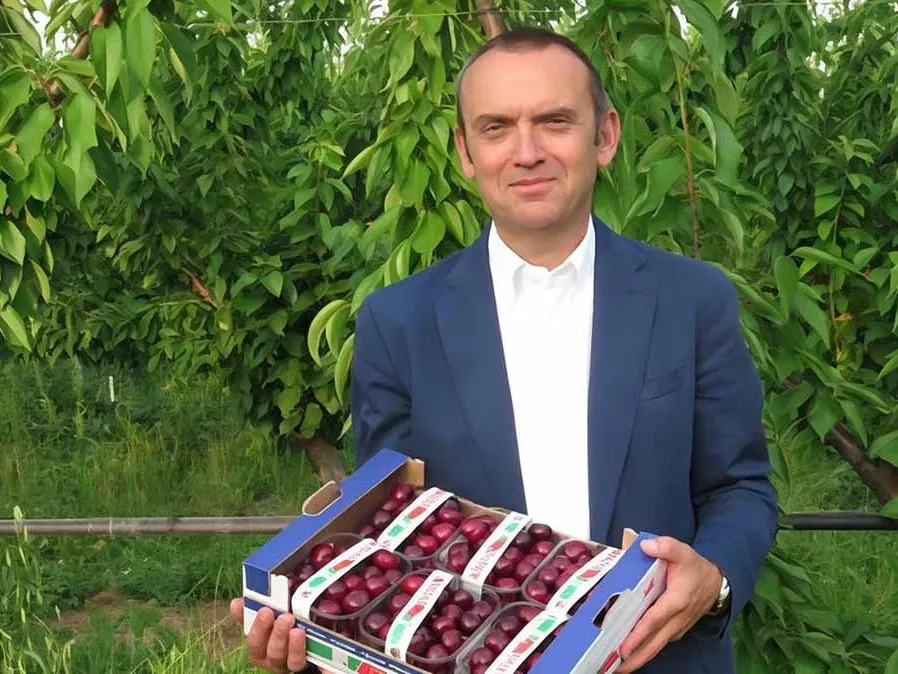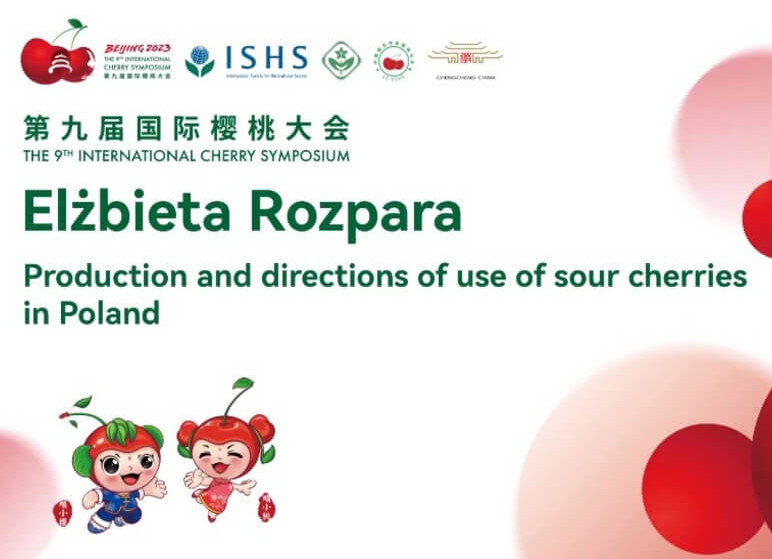In the small town of Orondo, nestled along the Columbia River with a stunning view of the Cascades, a picturesque family farm has been cultivated and owned by the same family for five generations.
One summer day, the rows of pear, apple, and cherry trees glistened under the sun across the nearly 300 acres of Griggs Farms. In the shade of one of the cherry trees, CEO and General Manager John Griggs reflected on the history of the farm, which his great-great-grandfather started as a farm in the late 1800s.
“I was born here,” Griggs said. “You want to be the one who can continue to pass it on. There’s a lot of pressure and not many farms have the fifth generation: it’s a long time.”
Griggs counted on his fingers as he listed the varieties of cherries grown on the farm, including Tieton, Santina, Black Pearl, Skeena, Sweetheart, Rainier, Bing, and the farm's proprietary variety: the Orondo Ruby, discovered and patented by Griggs’ father, Marcus.
“They’re special,” Griggs said. “It was just a random mutation that my father saw while walking around the blocks.”
After patenting the cherry—which involves taking DNA samples to ensure it is indeed a new variety—the family started cultivating the Orondo Ruby on the farm, which according to Griggs now grows more than 80 acres of this variety. The Orondo Ruby is said to be sweeter and more acidic than the Rainier, another Washington variety, with smoother, firmer skin, and stays fresh longer than the Bing.
Whatever the variety, Griggs loves them all; cherries are one of his favorite fruits. “There’s nothing better than a good cherry,” he said, adding that his favorite is the Bing, followed by the Rainier. “And I like to eat them right off the tree.”
Cherries have a short growing season, and despite numerous technological advances in agriculture, they are still hand-picked. Griggs said the farm employs 150 pickers to harvest the fruit when it’s ripe, many of whom return year after year. Griggs said he wants to ensure the farm is still here for generations to come.
“To me, sustainability means being able to continue from generation to generation,” he said. “We are good stewards of the land.”
Read the full article: Washington Grown
Image: Griggs Farms
Cherry Times - All rights reserved










